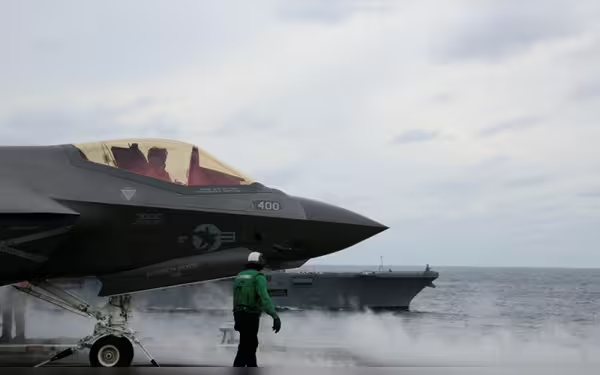Saturday, November 16, 2024 09:37 PM
UAE Confirms No Plans to Resume F-35 Talks with US
- UAE halts F-35 negotiations with the US.
- No discussions anticipated post US elections.
- Technical and operational issues cited for suspension.
 Image Credits: brecorder
Image Credits: brecorderUAE officials confirm no plans to resume F-35 fighter jet talks with the US, citing unchanged circumstances despite upcoming elections.
The United Arab Emirates (UAE) has made it clear that it does not plan to resume discussions with the United States regarding a significant deal for F-35 fighter jets. This announcement comes from a senior UAE government official, who emphasized that the situation remains unchanged regardless of the outcome of the upcoming U.S. presidential elections.
In recent reports, there were claims that the UAE might consider restarting negotiations for the purchase of F-35 warplanes and armed drones, particularly if Donald Trump were to win a second term in office. This speculation arose because Trump had previously approved the deal during his presidency in 2021. However, the UAE halted talks at the end of that year due to difficulties in reaching an agreement with the Biden administration.
The F-35 is known for its advanced stealth technology, which allows it to avoid detection by enemy radar systems. If the deal were to go through, the UAE would become only the second country in the Middle East, after Israel, to operate these sophisticated aircraft. Despite the potential benefits, the UAE official reiterated that the reasons for suspending talks in 2021 still apply today. Factors such as technical requirements, operational restrictions, and cost-benefit analysis have led the UAE to reassess its position.
In a statement, the official said, "Our position remains unchanged and we do not anticipate discussions regarding the F-35 being reopened for the foreseeable future, irrespective of the outcome of the upcoming US elections." This statement underscores the UAE's commitment to its current stance and highlights the complexities involved in international defense negotiations.
While the UAE has expressed no interest in reopening talks for the F-35, the official did not provide any insights into the possibility of future discussions regarding armed drones. This leaves room for speculation about the UAE's defense strategy and its ongoing relationship with the United States.
The UAE's decision to not pursue F-35 negotiations reflects a careful consideration of its national interests and the geopolitical landscape. As the world watches the upcoming U.S. elections, it remains to be seen how this will impact international defense agreements and the balance of power in the Middle East. The situation serves as a reminder of the intricate nature of global diplomacy, where decisions are often influenced by a multitude of factors beyond mere political changes.













